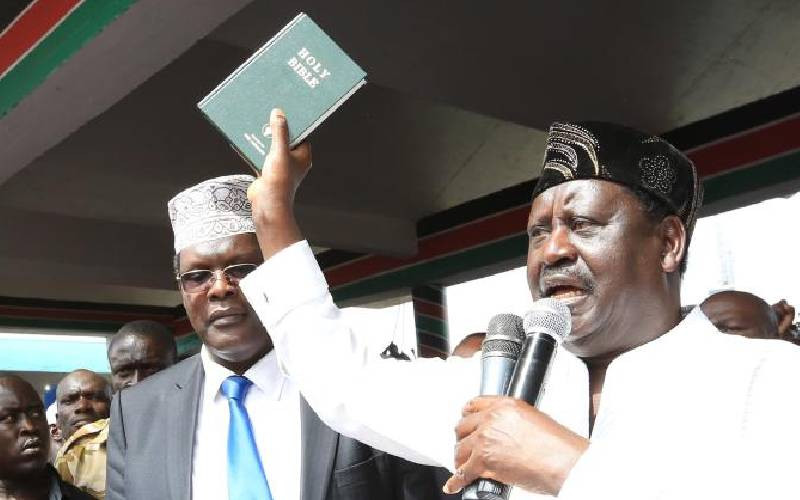×
The Standard e-Paper
Smart Minds Choose Us

Orange Democratic Movement (ODM) party leader Raila Odinga's swearing-in as the 'people's president' at Uhuru Park was a breach of the Constitution, the High Court has ruled.
Justice Anthony Mrima in his judgment said that once former President Uhuru Kenyatta was declared as the winner by the Independent Electoral and Boundaries Commission, then Raila's swearing-in was a foreign and illegal phenomenon to Kenya.